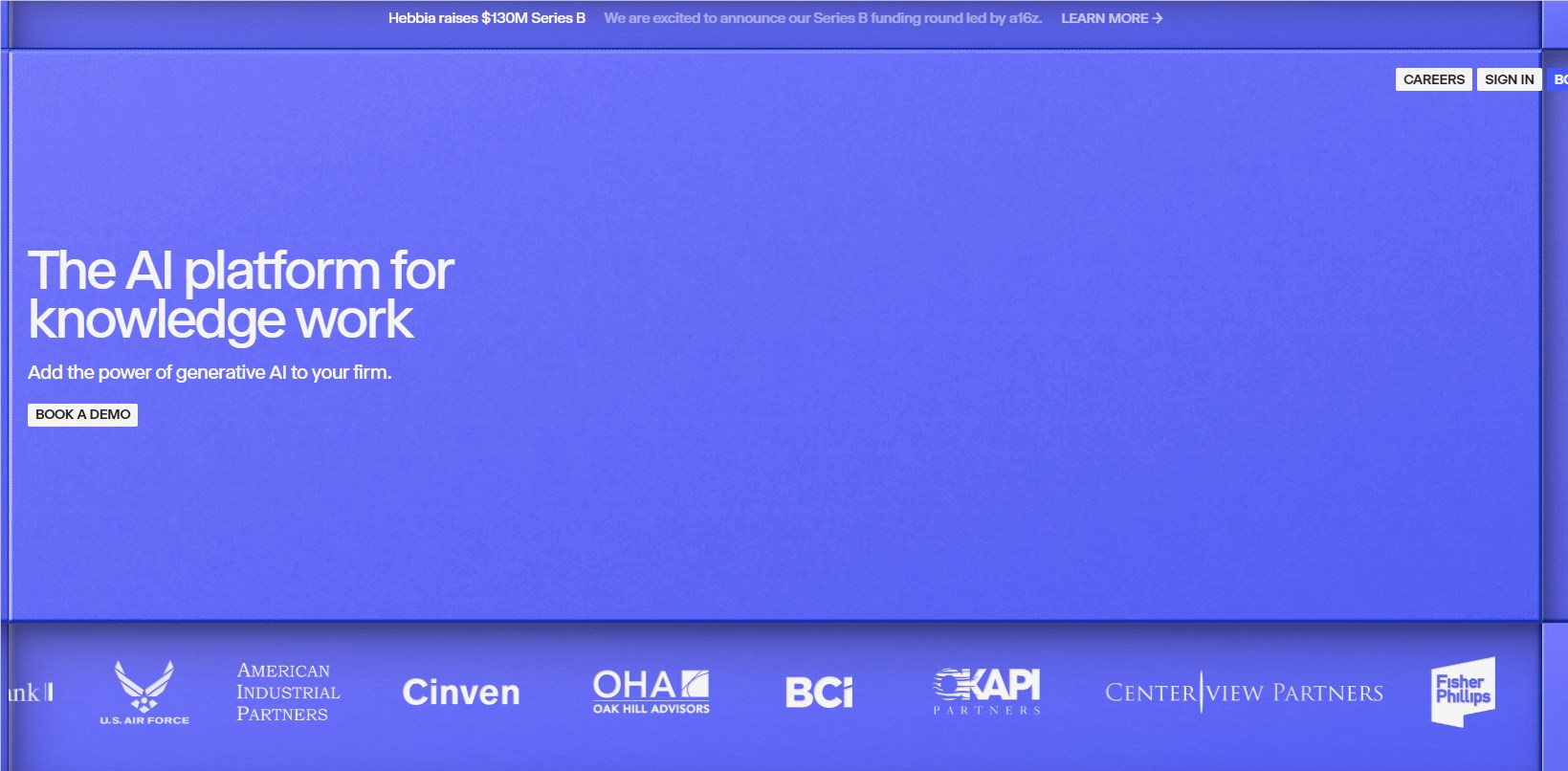New York company Hebbia recently announced the completion of a $130 million Series B round of financing, with a strong lineup of investors including Andreessen Horowitz, Index Ventures, Peter Thiel and Google Ventures. Hebbia is committed to building a localized LLM productivity interface designed to simplify the process of extracting value from data of all types and sizes. Its target customer base covers financial services, such as hedge funds and investment banks, and plans to further expand to more companies.
New York-based Hebbia announced it has raised $130 million in Series B funding from investors including Andreessen Horowitz, Index Ventures, Peter Thiel and Google’s venture capital arm.
What Hebbia is building is something fairly simple: an LLM-native productivity interface that makes it easier to get value from data, regardless of its type or size. The company is already working with some of the biggest players in the financial services industry, including hedge funds and investment banks, and plans to bring the technology to more businesses in the coming days.

Product entrance: https://top.aibase.com/tool/hebbia
While LLM-based chatbots can be based on internal or prompt documents, many people note that these assistants are unable to answer complex questions about business functions. In some cases, the problem is the context window, which cannot handle the size of the document provided, while in other cases the complexity of the query prevents the model from accurately solving it. Errors may even affect the team's confidence in the language model.
Hebbia addresses this gap by providing the LLM-related agent co-pilot Matrix. The product sits within a company's business environment, allowing knowledge workers to ask complex questions related to internal documents - from PDFs, spreadsheets and Word documents to audio transcriptions - with unlimited contextual windows.
Once the user provides a query and related documents/files, Matrix breaks it down into smaller operations that LLM can perform. This enables it to analyze all the information contained in the document at once and extract the required content in a structured form. Hebbia said the platform enables models to reason about any volume (millions to billions of documents) and data modalities, while providing relevant references to help users track each action and understand how the platform ultimately arrived at the answer.
With this latest round of funding, the company hopes to build on this foundation and attract more large enterprises to use its platform to simplify the way their workers retrieve knowledge.
Hebbia isn't the only company in this space. Other companies are also exploring AI-based knowledge retrieval for enterprises, including Glean. The Palo Alto, California-based startup reached unicorn status in 2022 and built a ChatGPT-like assistant specifically for workplace productivity. There are also players like Vectara that are working to enable universal AI experiences based on enterprise data.
Highlight:
? Hebbia received US$130 million in Series B financing to create a localized productivity interface for LLM to make it easier to obtain value from data.
? Hebbia's agent co-pilot Matrix can analyze the information contained in all documents and extract the required content in a structured form.
? Hebbia has partnered with institutions such as CharlesBank, Center View Partners, and the U.S. Air Force, and has more than 1,000 live use cases.
The editor of Downcodes concluded: Hebbia’s financing and product positioning are worthy of attention. Its ability to solve complex business problems and its innovation in LLM applications have made it an important player in the field of AI productivity tools. Future development is worth looking forward to.